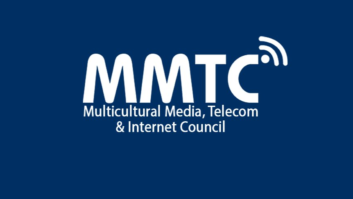New reporting rules for Internet streamers
Dec 1, 2006 12:00 PM, By Harry Martin
Interim rules released by the Copyright Royalty Board (CRB) in October wrap up a proceeding related to recordkeeping and notice requirements for digital audio services � referred to as Internet radio, webcasting, streaming or simulcasting � that have been unresolved in terms of streaming services since they became subject to copyright royalties in 2002.
Since April 2004 Internet radio stations were supposed to be keeping detailed records about the songs they were playing. The problem was that the CRB had not specified what, if anything, was to be done with those records. That has now been resolved.
The records, or at least a portion of them, will have to be sent to Sound Exchange, the monitoring agency created by the recording industry to keep track of streaming royalty obligations and payments. This means that copyright holders in musical and other works will be receiving all the information required to receive royalties for these performances, so it is likely that enforcement against online infringers will increase. (Under the current legal framework, to play music over-the-air, a radio station needs to deal only with ASCAP, BMI and SESAC. But to play music over the Internet requires a separate payment to Sound Exchange.)
More to the process
Paying is only part of the equation. To accommodate the need for an accurate basis to assess royalties, the Copyright Office permitted Sound Exchange to require radio stations to do the necessary recordkeeping themselves. On March 11, 2004, interim rules were announced that required every radio station streaming over the Internet to compile records of every song played. These reports of use must contain detailed information regarding each song played on the station, including the transmission category code, the name of the performer, the Sound Recording Identification, consisting of the International Standard Recording Code (ISRC) or the album title and marketing label, and information on the number of performances of that song.
These reports must be filed only for two seven-day periods within each quarter. These seven-day periods do not have to be consecutive to each other, nor do they have to start or end on a Sunday. In the new rules published in October, the CRB specified the format in which these reports must be filed with Sound Exchange. The CRB attempted to create a reasonable system for creating, maintaining and delivering these records to Sound Exchange. Noting that broadcasters were looking for the most expedient and practical means to comply, while Sound Exchange wanted the most useable format, the CRB essentially sided with Sound Exchange on most reporting form issues.
As a result, all filings must be in electronic format. They must be in spreadsheet form (using either Microsoft Excel or Corel’s Quattro Pro) and must be encoded in ASCII. This quarterly report can be sent to Sound Exchange by e-mail or other electronic means. Moreover, Internet webcasters must now file with Sound Exchange all quarterly reports of use dating back to April 1, 2004, as well as every quarter going forward.
To summarize, any radio station that is simulcasting its over-the-air signal on the Internet, or creating unique content of any type and streaming it on the Web, must have on file at the Copyright Office a Notice of Use of Sound Recordings Under Statutory License; pay copyright royalties on a monthly basis; file records of use on a quarterly basis consistent with the new format; and comply with the requirements of the Digital Millennium Copyright Act intended to prevent musical piracy, many of which contain strict controls on playlists.
Martin is a past president of the Federal Communications Bar Association and a member of Fletcher, Heald & Hildreth, Arlington, VA. E-mail[email protected].
Dateline
Jan. 10 is the deadline for all stations to place their fourth-quarter 2006 issues and programs lists in their public files. Feb. 1 is the deadline for stations in Kansas, Nebraska and Oklahoma to file their 2007 biennial ownership reports. Feb. 1 is the deadline for stations in the following states to place their annual EEO reports in their public files and post them on their websites: Arkansas, Kansas, Louisiana, Mississippi, Nebraska, Oklahoma, New York and New Jersey.












